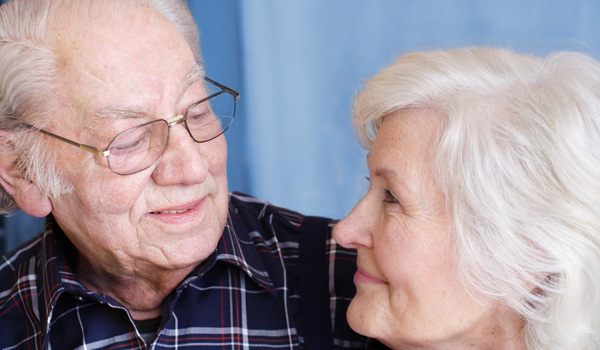Brain Exercises Change Personality in Older Adults

Get the world’s most fascinating discoveries delivered straight to your inbox.
You are now subscribed
Your newsletter sign-up was successful
Want to add more newsletters?

Delivered Daily
Daily Newsletter
Sign up for the latest discoveries, groundbreaking research and fascinating breakthroughs that impact you and the wider world direct to your inbox.

Once a week
Life's Little Mysteries
Feed your curiosity with an exclusive mystery every week, solved with science and delivered direct to your inbox before it's seen anywhere else.

Once a week
How It Works
Sign up to our free science & technology newsletter for your weekly fix of fascinating articles, quick quizzes, amazing images, and more

Delivered daily
Space.com Newsletter
Breaking space news, the latest updates on rocket launches, skywatching events and more!

Once a month
Watch This Space
Sign up to our monthly entertainment newsletter to keep up with all our coverage of the latest sci-fi and space movies, tv shows, games and books.

Once a week
Night Sky This Week
Discover this week's must-see night sky events, moon phases, and stunning astrophotos. Sign up for our skywatching newsletter and explore the universe with us!
Join the club
Get full access to premium articles, exclusive features and a growing list of member rewards.
Activities designed to improve mental abilities of older adults may also change their personalities, a new study says.
Participants in the study who completed a program aimed at boosting cognition, which included problem sets, Sudoku puzzles and crosswords, also became more open to new experiences, the researchers said.
The study is the first to show that an intervention other than a drug or psychotherapy can change personality in older adults, according to the researchers.
The findings counter the assumption that adult personalities, particularly those of the elderly, are fixed and resistant to change, the researchers said.
Changing personality
The study involved 183 adults ages 60 to 94. About half of the participants were enrolled in a cognitive- training program designed to improve their pattern-recognition and problem-solving skills.
The 16-week program included classroom sessions, and problem sets and puzzles to be completed at home. The puzzles became more difficult over time, but were always matched to the participants' skill levels based on their previous results. The other half of the participants did not participate in the cognitive-training program.
Get the world’s most fascinating discoveries delivered straight to your inbox.
Tests of cognitive abilities and personality were given at the beginning and end of the study. The personality test measured five personality traits: extraversion, agreeableness, conscientiousness, neuroticism and openness.
"Openness" is a measure of how open someone is to novelty and challenge. People who score high on openness tend to be curious, creative and amenable to new ideas and intellectual pursuits.
As was expected, the participants' problem-solving skills improved. In addition, those who completed the program saw an increase in their scores for openness compared to those not in the program.
Scores for other personality traits did not change over the course of the study.
Growing confidence
The training program was designed to be challenging without being overwhelming, said study researcher Elizabeth Stine-Morrow, a professor of educational psychology at the University of Illinois. This is a good combination to help someone become comfortable with new experiences and challenges, Stine-Morrow said.
"Growing confidence in their reasoning abilities possibly enabled greater enjoyment of intellectually challenging and creative endeavors," Stine-Morrow added.
Because the study only looked at older adults, the results cannot be generalized to other age groups, Stine-Morrow said.
The study was published yesterday (Jan. 16) in the journal Psychology and Aging.
Pass it on: A program designed to improve cognition in older adults appears to make them more open to new experiences.
Follow MyHealthNewsDaily staff writer Rachael Rettner on Twitter @RachaelRettner. Find us on Facebook.

Rachael is a Live Science contributor, and was a former channel editor and senior writer for Live Science between 2010 and 2022. She has a master's degree in journalism from New York University's Science, Health and Environmental Reporting Program. She also holds a B.S. in molecular biology and an M.S. in biology from the University of California, San Diego. Her work has appeared in Scienceline, The Washington Post and Scientific American.
 Live Science Plus
Live Science Plus





